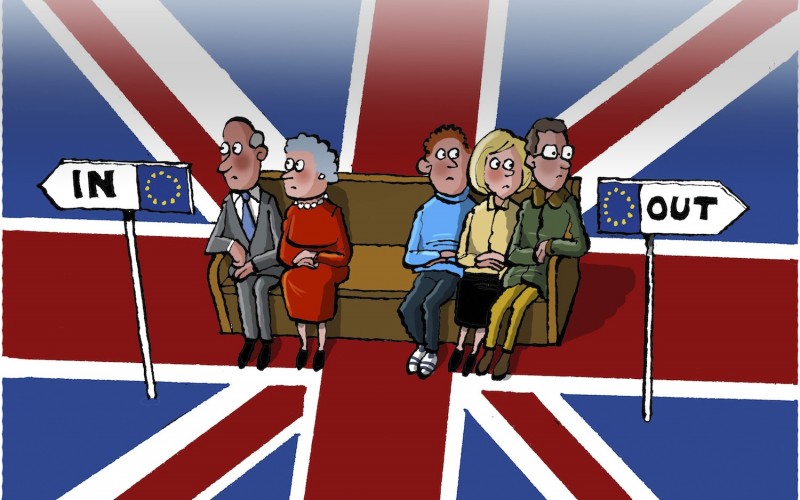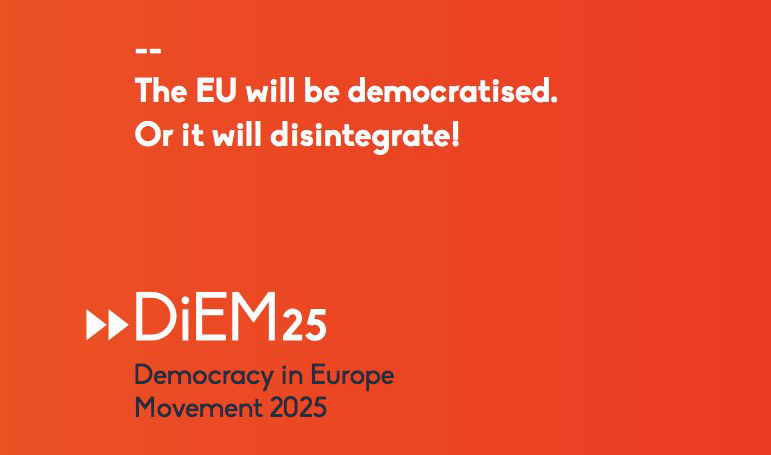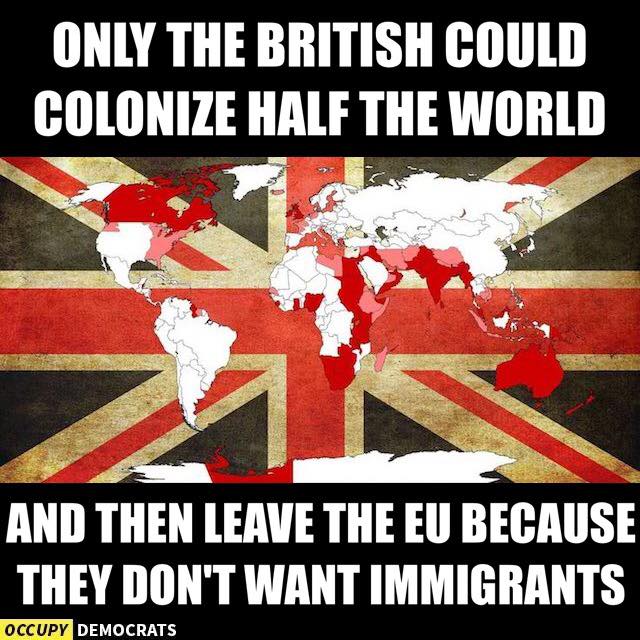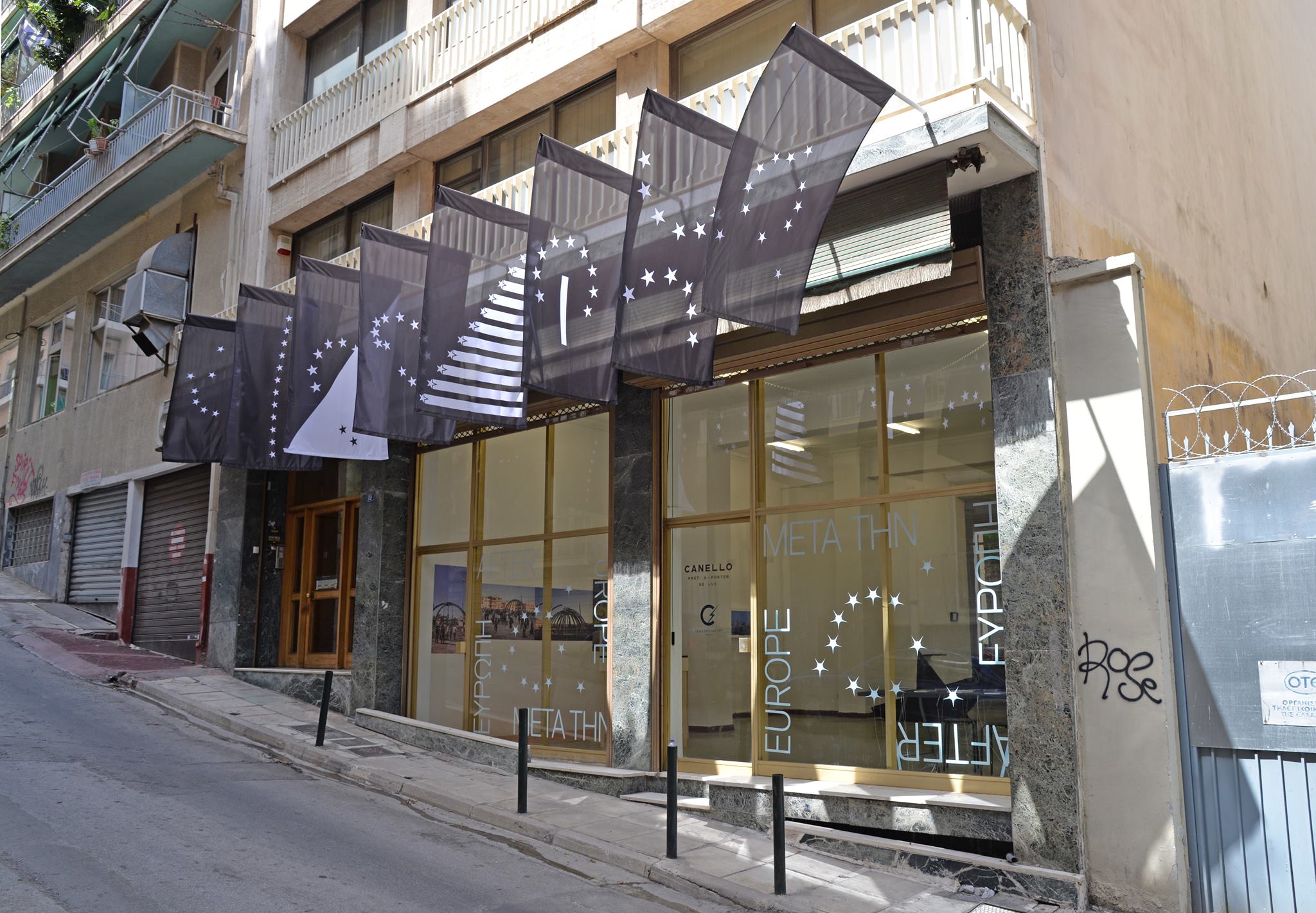Should I Stay Or Should I Go
1982 the English punk rock band The Clash released the Song Should I Stay Or Should I Go, and they reached new heights of success. More then thirty years later the mayority of Britains decided in a referendum held across Britain, the UK should leave the European Union.
The art critic and Middle East based writer Arie Amaya-Akkermans commented on his facebook site the following morning: The stupidity of Brexiters is infinite. They yell democracy this, democracy that. This referendum was the equivalent of asking teenagers to vote whether they want to learn algebra. Of course nobody wants to learn algebra, so of course you don’t ask them. Especially because there’s no better alternative, so they’ll stay dumb. Like the dumbasses that call this self-inflicted gunshot in the head a victory.
You cant describe this geeky referendum with better words.

The Democracy in Europe Movement 2025 (short DiEM25) regrets that the British people chose to leave the EU. But at the same time, DiEM25 welcomes the British people’s determination to tackle the diminution of democratic sovereignty caused by the gross de-politicisation of political decisions.
As of today, DiEM25 will seize upon the OUT vote to promote its radical agenda of confronting the EU establishment more powerfully than before.
The EU’s disintegration is now running at full speed. The DiEM25 campaign of building bridges across Europe, bringing people together across borders and political parties, is what Europe needs more than ever to avoid a slide into a xenophobic, deflationary, nationalist abyss.

DiEM25 is a Pan-European movement with a simple, radical purpose: To democratise Europe beyond any borders! The movement was launched by Yanis Varoufakis, Greece’s ex-finance minister.
Lets take this manifesto by DiEM25 as a starting point to discuss a new world order beyond any borders as envisioned by French architect Leopold Lambert demanded in his Manifesto for an Alternative Cartography: in the 21th century and against the background of the wars in the middle east we should rethink the concept of nations as a result of the World War I and as of the colonialism of the 19th century under the control of the European Nations (UK, France, Spain, Portugal, Germany and so on).
After this week’s Brexit the need to unionize Europe anew seems all the more urgent. It’s an urgency that no exhibition or artwork can contain by itself. But art can contribute to an alternative imaginary through which we write the scenarios and build the coalitions and forms needed for new transdemocratic unions to emerge. More now than ever before.

Only the British can colonize half the world and then leave the EU because they do not want immigrants, by Occupy Democrats
German actor Hannes Jaenicke published today on his facebook site a grafic by Occupy Democrats saying, only the British can colonize half of world and then leave the EU because they don’t want immigrants. Yes, but the EU is at the same time a product of the policies of Winston Churchill, who was British prime minister during 1940-1945; he wanted with this concept to avoid new nationalism after WW II in Europe without overcoming the European imperialism of the old Empires including the Ottomans and the production of todays new immigrants. This referendum as shown today could become the collapse of the United Kingdom and its power as Empire when Scotland, Nothern Ireland and Gribaltar wants to remain in the EU. If this will be happen, it will be the opposite what was intended with the LEAVE referendum.
 New Unions (flags), 2016, Studio Jonas Staal, installation view © State of Concept, 2016.
New Unions (flags), 2016, Studio Jonas Staal, installation view © State of Concept, 2016.
Last Tuesday opened the exhibition After Europe by the Dutch artists Jonas Staal in Athens curated by Iliana Fokianaki.
The exhibition After Europe centers on the current political, economic, and humanitarian crises in Europe. Rejecting both the existing managerial and corporate policies of the EU as well as the rise of ultranationalist parties all over the continent, Staal proposes art as a space to criticize and rethink the idea of the political union. What comes after Europe as we have known it so far? Where can the desire and imaginary of art bring us, to establish a new transdemocratic union?
On the opening night of the exhibition ‘After Europe’ the artist and the curator joined stage to discuss what comes after Europe. The panel discussion ‘After Europe’ takes the exhibition by artist Jonas Staal as a departure point to question the construct of Europe, the current crises unfolding in the European Union, and most of all challenges an imagination of what could or should come after Europe as we know it. A panel of politicians, activists, curators and artists involved in political movements and cultural work throughout Europe discussed the political, economic and cultural struggles we’re facing now, and debate the horizons we want these struggles to establish in order to create new future unions.

